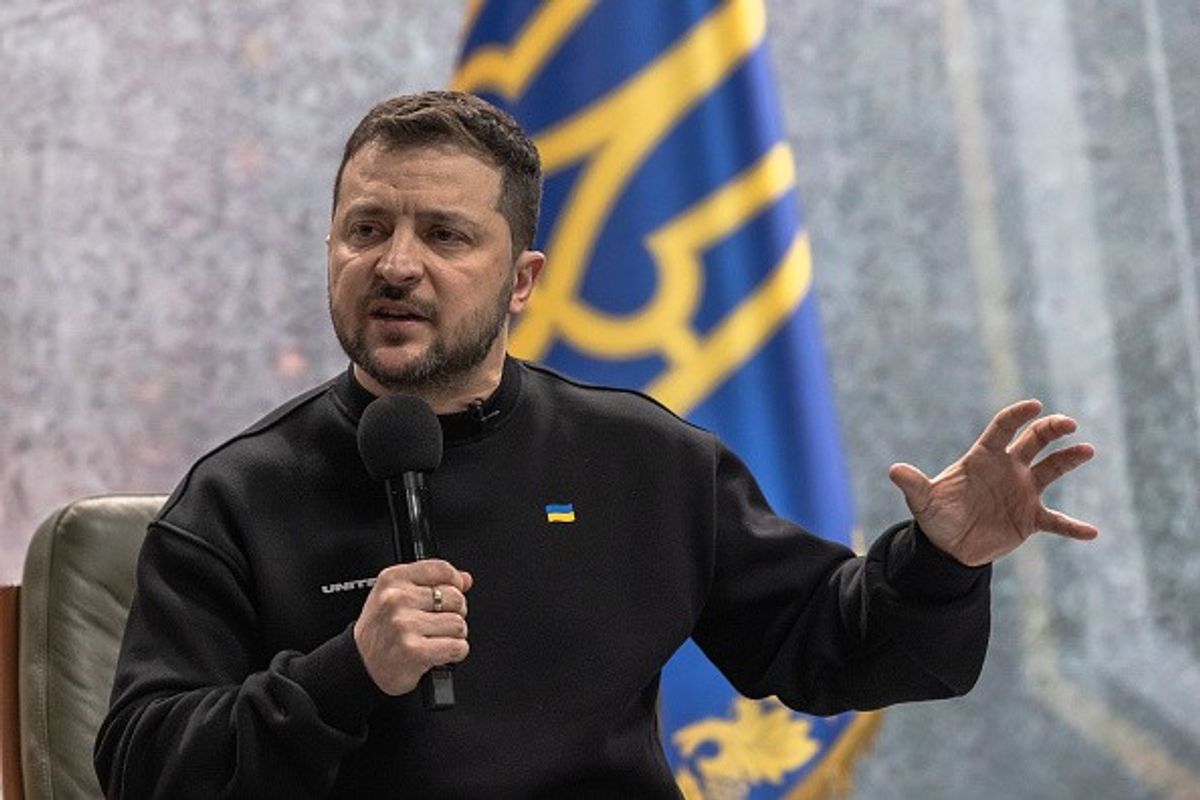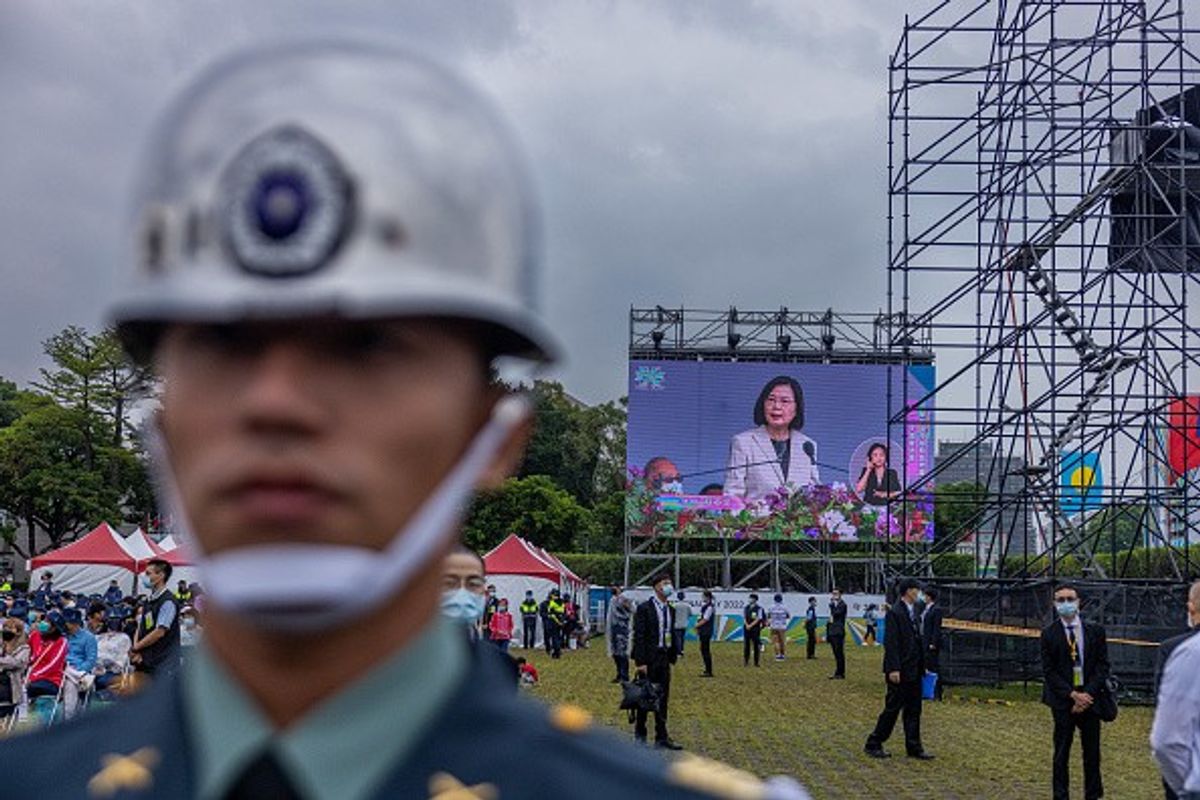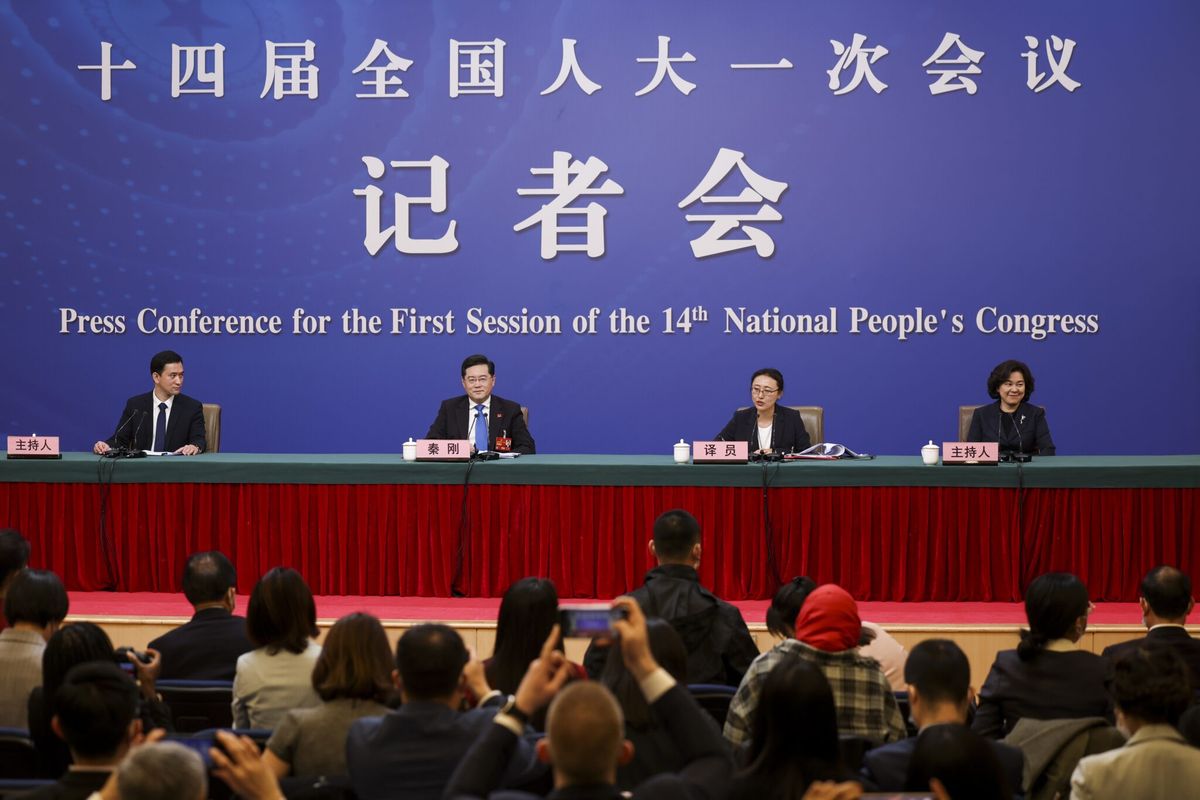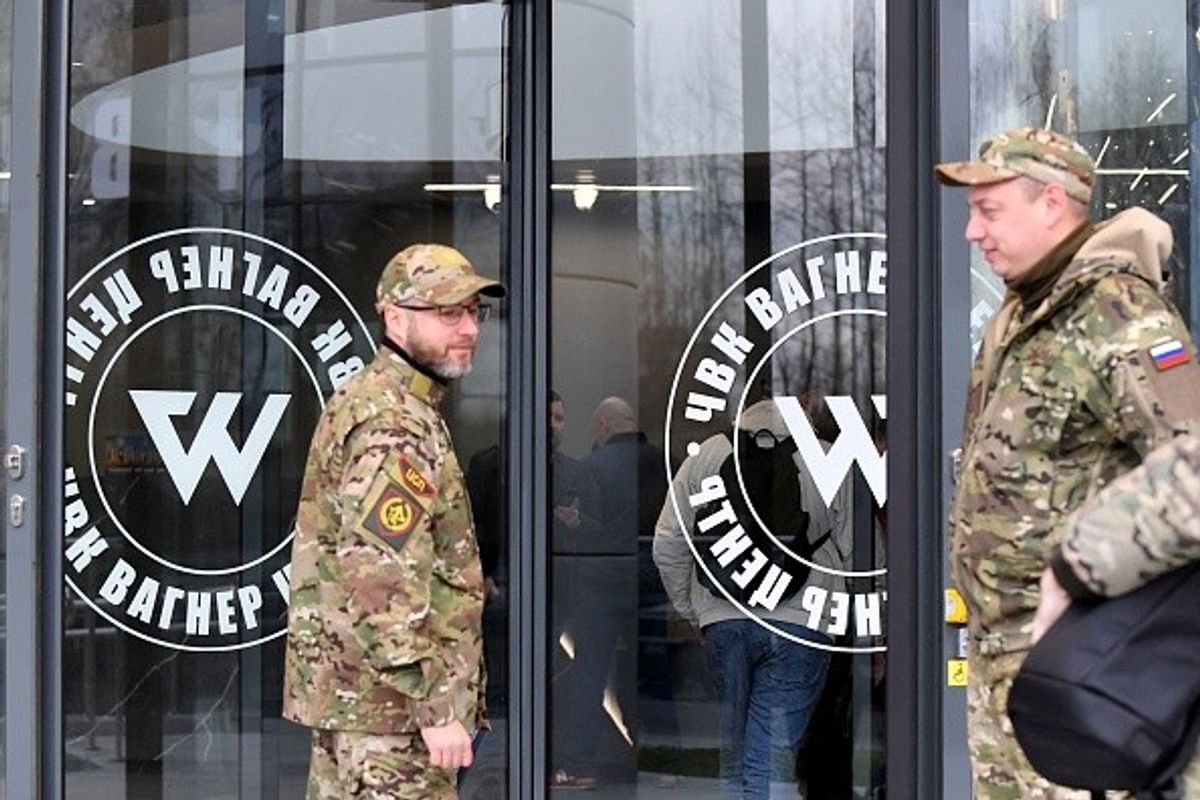EXPERT PERSPECTIVE — The European Union has made its long-awaited decision to cap Russian crude oil at $60 per barrel and to prevent European companies from shipping Russian oil not covered by the price cap, to other countries. The measures took effect at the same time the EU imposed a new sanctions package outlawing a range of maritime services to Russia. A Kremlin spokesman described the EU actions as “a step toward destabilization of the world energy markets.”
The EU moves represent the latest salvos in the Western campaign to exact an economic price for Russia’s aggression against Ukraine.
Back in July, researchers at Yale’s Chief Executive Leadership Institute (CELI) offered a contrarian opinion on the Russian economy — they said in many respects, it was cratering. In the early months of Russia’s invasion of Ukraine, a common refrain was that Moscow had found ways to blunt the most severe effects of Western sanctions while raking in windfall profits from energy sales.
Since that summer analysis, a range of media and specialist reports have added further texture and depth to the West’s understanding of Russia’s economic crisis. Collectively, they point to an economy that is deeply troubled, and yet still functioning.
BACKGROUND
- Echoing the Yale CELI report, other observers are pointing to faultlines in Russia’s economy, including the impact of export controls in undermining Russia’s defense industry. Russian manufacturing companies’ dependence on foreign components and machinery remains high and, consequently, export controls play a role in impeding Russia’s ability to replenish depleting stockpiles of weapons and ammunition.
- Unsurprisingly, technology emerges as a pivotal, and largely negative factor, for Russia’s performance. The withdrawal of Western companies and assets, coupled with the “brain drain” of Russian tech specialists sparked by the invasion itself, and subsequent mobilization of conscripts, has plunged this sector into uncertainty.
- These challenges to Russia notwithstanding, loopholes persist in the West’s economic efforts to discourage and reverse Russia’s aggression against its neighbors. For example, pending the early December implementation of a European cap on Russian oil sales, a flotilla of both legitimate and “ghost fleet” oil tankers were finding ways around the bans on Russian exports, “seriously undermining the sanctions.”
THE EXPERTS
The Cipher Brief turned to several experts for insights on the often murky state of Russia's economy, and the consequential outcomes riding on Moscow's success or failure, in weathering the economic storm. Interviews have been excerpted and lightly edited for clarity and brevity.
Daniel Hoffman, national security analyst with Fox News and former senior CIA officer.
Daniel Hoffman is a former senior officer with the Central Intelligence Agency, where he served as a three-time station chief and a senior executive clandestine services officer. Hoffman also led large-scale HUMINT (human intelligence gathering) and technical programs and his assignments included tours of duty in the former Soviet Union, Europe, and war zones in the Middle East and South Asia. He is currently a national security analyst with Fox News.
Rachel Ziemba, Adjunct Senior Fellow at the Center for a New American Security (CNAS).
Rachel Ziemba is an Adjunct Senior Fellow at the Center for a New American Security (CNAS). Her research focuses on the interlinkages between economics, finance and security issues. She also serves as a strategic advisor at Alpha Z Advisors, an equity futures fund, and is founder of Ziemba Insights, a macroeconomic research firm.
Mathew Burrows, Distinguished Fellow with the Reimagining US Grand Strategy program at the Stimson Center.
Mathew Burrows is a Distinguished Fellow with the Reimagining US Grand Strategy program at the Stimson Center. He formerly served as the director of Foresight for the Atlantic Council’s Scowcroft Strategy Initiative and as the co-director of New American Engagement Initiative. In 2013, he retired from a 28-year career in the State Department and CIA, the last 10 years of which he spent at the National Intelligence Council.
Michal Wyrebkowski, Research Assistant to the Associate Dean of Yale School of Management.
Michal Wyrebkowski is a co-author of the recent Yale Chief Executive Leadership Institute (CELI) analysis, “Business Retreats and Sanctions Are Crippling The Russian Economy,” curator of the CELI catalogue monitoring the withdrawal of over 1,000 multinationals from Russia, and an analyst of Western companies’ operations in Russia.
The Cipher Brief: What is your view on the prospects for Russia's economy given that the war in Ukraine has dragged on far beyond Moscow's original timetable?
Hoffman: The war is going to be decided on the battlefield. Some of the economic impacts are interesting to follow. They'll have long-term ramifications but it's a bit of a side show. As far as who's going to determine who wins the war, the threat of economic sanctions never deterred Vladimir Putin in the first place. He's making enough money off the sale of oil to China and India to carry on, and he's getting enough support from North Korea and Iran, for the moment at least, to be able to launch destructive attacks on Ukraine and carry on this war that he says is going to last.
The economic questions are interesting. There are long-term implications. Russia's kind of becoming a colony of China. They're sending all of their raw materials and hydrocarbons to the Chinese, and they've decided that they're not going to be engaged with Europe. So, you're seeing a real break between Russia and the West, economically, culturally, diplomatically. The big story of the war is that there's a break between Russia and the West, with Putin turning to the East.
The bigger question isn't the Russian economy, it's Ukraine. How do you rebuild? What's the cost of that? A trillion dollars? Who's going to pay for it? It's a good investment to support Ukraine. They're doing more to counter Russia's aggression than any NATO member has ever done, and that's good. That's a good investment for us. But with their cities being bombed, with schools and hospitals and apartments and millions of people displaced internally and millions more refugees overseas, what happens to Ukraine? That's the story here, that in spite of their economy being completely destroyed, they're out there fighting for their lives. Forget the Russian economy. The story is Ukraine's morale and commitment to freedom and their territorial integrity in the face of this Russian onslaught.
Ziemba: Overall, Russia’s economy is contracting, experiencing notable negative growth, due to sanctions, their own defensive policies to cope with and mitigate sanctions, as well as the cost of the war. It's not collapsing, but it's shrinking and it's jeopardizing some of its long-term strategic interests including a loss of human capital. The economy is not only shrinking but is becoming more state-led and linked to military operations. The private sector is less able to cope with the shocks than the public sector and bankruptcy rates are rising. The public sector is likely to crowd out the private sector in terms of lending, debt issuance and key supply chains. For example, some of the weakest sectors have been in auto manufacturing, as needed inputs couldn't be acquired.
Still, Russia is relatively self-sufficient in terms of food, and some other key commodities, but it struggles to import needed electronic components including chips, and is forced to rely on lower quality ones. In short, the economy is shrinking and becoming a war economy, but it's coping as Russia is willing to jeopardize some of its longer-term economic interests, rely on new trading partners, the barter system, etc.
Sanctions have been more effective in limiting Russia’s ability to use its revenues and to limit its imports but have done less to cut its revenues though that is changing with recent energy embargos, both Russian and European. Future investment and potential growth are cut significantly. Meanwhile, Russia’s government budget is now in deficit as cuts to gas exports and oil exports are weakening revenues while the cost of fighting the war is increasing.
Burrows: Russia's economy has held up better than most predicted due to the Central Bank’s deft and swift handling in avoiding a ruble collapse by taking swift action in raising interest rates and putting on capital controls. Not ideal for the long term, but important for stabilizing the economy. Since then, the Russian government has benefitted from the higher energy prices at the onset of the Ukraine war. With energy prices shifting downward, the government faces new challenges to ensure revenue flows while sustaining a lengthening war and maintaining social welfare support for the Russian public. It's an increasingly difficult balancing act.
A good portion of [skilled human capital] has fled. Its return will be vital for any Russian economic expansion in the medium and longer term. They have the technology know-how to diversify the economy beyond energy, minerals and food. Otherwise, without them, the economy will be just treading water and will become increasingly dependent on trade with — and investment by — China. I don’t see the financial picture (outside of increasing business with China that is done in rubles/yuan) changing much unless U.S. sanctions are lifted. And, in my estimation, that will take a very long while even if there is a ceasefire and a Russia-Ukraine peace agreement.
Russia's budget deficit is expected to grow to 2.5 percent of GDP next year and to 4 percent in 2024. That is still modest by Western standards but Russia has an additional problem of not being able to tap global financial markets. Russia has a friend in Saudi Arabia which wants to stabilize oil prices towards $100 for its own purposes. Right now $100 appears unlikely to return soon but if the global economy improves, then we could see increasing discounted oil sales to China, etc. repairing the budget deficits.
Wyrebkowski: The Russian economy has been crippled by sanctions and Western business withdrawals. The mobilization announced in September was an additional blow, catalyzing the flight of talent to the Caucasus and Central Asia, inhibiting any long-term growth potential for Russia. Oil price caps and the self-inflicted sabotage of gas pipelines, paired with a decision to stop supplying Europe with a meaningful amount of gas, significantly limit Russia's ability to finance its budget, maintain the fiscal stimulus, and pay for its war effort. Even though Russia is able to circumvent some of the sanctions via Turkey, it has no access to capital markets to finance its import substitution schemes. In general, all those structural trends contribute to the persistent weakness of the Russian economy, which is only propped up by an unsustainable fiscal and monetary stimulus.
As the late John McCain used to say: "Russia is a gas station masquerading as a country". About half of Russia's budget with which it fuels its war machine comes from oil and gas revenues. The recent decline of oil prices severely limits Russia's ability to finance the war, with Russia only being able to earn less than $20 per barrel, more than two times less than other oil producers.
The swift withdrawal of major Western oil firms and oil and gas servicing companies paints a bleak prospect for the future of Russian oil production. Russia has no domestic shale technology, nor does it have the ability to exploit its Arctic fossil fuel resources given the current technology sanctions regime. Those fields have a very high break-even point, and as western Siberian oil fields deplete, Russia is left with no capital or technology to finance new oil ventures. On top of that, as Europe inevitably weans itself off its pernicious Russian gas dependence, Russia ceases to be the energy superpower it once was. All of the other elements of the Russian economic collapse are interconnected and tie back to energy.
Cipher Brief Senior Editor Ken Hughes contributed to this report.
Read more expert-driven national security insights, perspective and analysis in The Cipher Brief


















